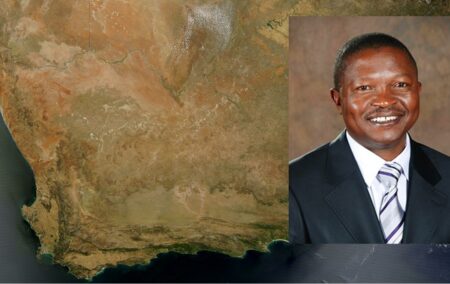It remains to be seen whether there is any real appetite to discuss solutions that bring about prudent and productive land reform that really does leave beneficiaries better off.
Recent days have witnessed two potentially significant developments in the winding path of South Africa’s land policy.
The first, enunciated by deputy president David Mabuza, is that government will be releasing criteria for redistributing state land. The second, from Dr Mathole Motshekga, chairman of the committee on the amendment of Section 25 of the Constitution, is that the committee is to consult ‘various experts on the question of land and amending the Constitution accordingly’.
Indirectly, both of these initiatives speak directly to the debilitating uncertainty, even incoherence, at the heart of land policy. As close as one can come to an official line – from both government and the African National Congress – is that land reform is a new priority, and it will be driven by the state.
Empowering the state to expropriate property without compensation (EWC) has become the flagship project of this drive, and amending the Bill of Rights its totem. Once again, the rationale was murky. Proponents of the measure – including President Cyril Ramaphosa himself – argued that in its present formulation, Section 25 allowed EWC under certain circumstances.
Reasonably enough, this has invited concerns as to what the ultimate goal is. The idea of a mass custodial taking (in effect, ending private ownership of land) has been raised regularly, not least from within the government.
Few would argue with releasing state land for land reform purposes – indeed, this is to be applauded. The deputy president indicated that 278 parcels of land, totalling 1.5 million hectares, had been identified. This is by no means insignificant. He also said that it must be utilised.
But herein lies the rub. What ‘criteria’ will apply in this endeavour? How will beneficiaries be selected? Will it be a process that assists the ambitious and entrepreneurial to pursue their own prosperity, or one that passes on a means of patronage to the unscrupulous and connected? Given the pathologies that afflict South Africa’s public administration (and the land reform programme), these are critically important questions.
Perhaps most important is how the beneficiaries will receive and hold this land. Currently – in terms of the State Land Lease and Disposal Policy – the aim is to retain it as state property. As Acting Director General Rendani Sadiki of the Department of Rural Development and Land Reform explained in court papers earlier this year, this rests on the principle ‘that black farming households and communities may obtain 30-year leases, renewable for a further 20 years, before the state will consider transferring ownership to them’.
This not only denies them the benefits of ownership – such as the ability to raise capital – but is demeaning. It sets them apart from other commercial farmers, as they are expected to perform to the satisfaction of officials (who may themselves have no farming expertise) for half a century before being worthy of the ownership that forms the basis of most established commercial farming operations.
Perhaps this has a link to the committee’s envisaged deliberation. Precisely what the commission expects to learn is unclear. All indications are that last year’s process – the hearings as to whether to recommend a change to the constitution – were undertaken with a predetermined goal in mind. Certainly the weight of opinion expressed was opposed to the amendment of the Constitution.
Dr Motshekga has pledged that the committee ‘will set aside politics and decide on what is in the best interests of all South Africans’. That would certainly be a positive step, though based on the trajectory of the issue over the past two years, it is most unlikely. EWC has been a deeply political matter. Or, rather, it has been a deeply ideological one, in which a resort to that most sinister of political impulses, racial nationalism, has been ever present.
It remains to be seen whether there is any real appetite to discuss solutions that bring about prudent and productive land reform, that leaves beneficiaries better off – or whether this becomes an exercise in validating what has already been decided. Or, to appropriate a phrase associated with this debate, ‘to make explicit that which is implicit’.
It is time South Africa moved to an empowering model of land reform, one that encourages and makes possible the economic use of land, and that extends the dignity of property ownership to its beneficiaries.
The imperative of this was emphasised just last week when the Pretoria High Court ruled in favour of Limpopo farmer David Rakgase. He had been forced to take the state to court to compel it to sell him the land he had farmed for close on three decades, and which the government had agreed to sell to him back in 2002. That the government was subsequently willing to spend large sums of money and large amounts of time in court to deny this to him speaks volumes about the deficiencies and absurdities of things as they currently stand.
There are probably thousands of David Rakgases throughout the country. It is time for government and Parliament hear them.
Terence Corrigan is a project manager at the Institute of Race Relations.
If you like what you have just read, become a Friend of the IRR if you aren’t already one by SMSing your name to 32823 or clicking here. Each SMS costs R1.’ Terms & Conditions Apply.

